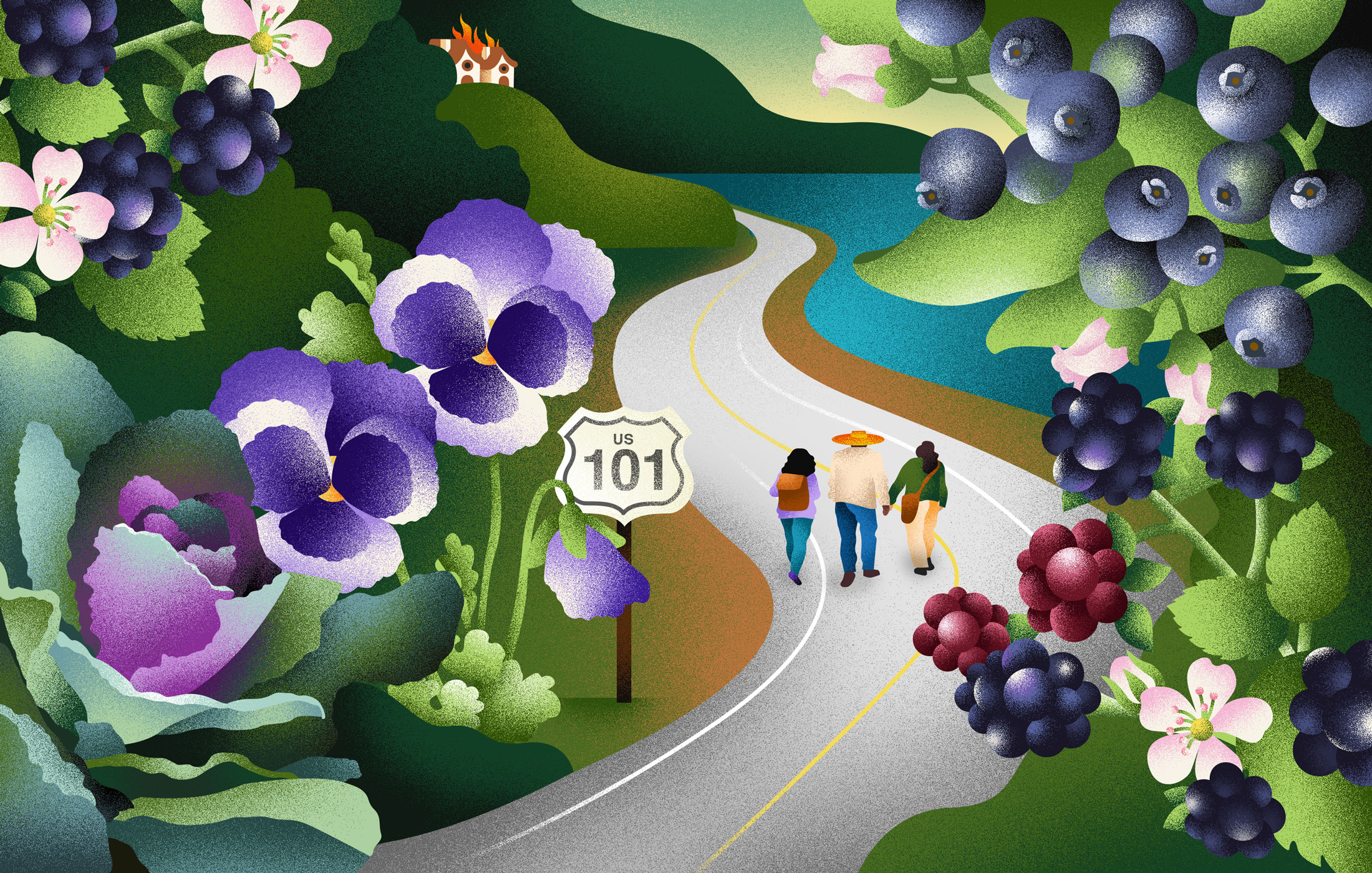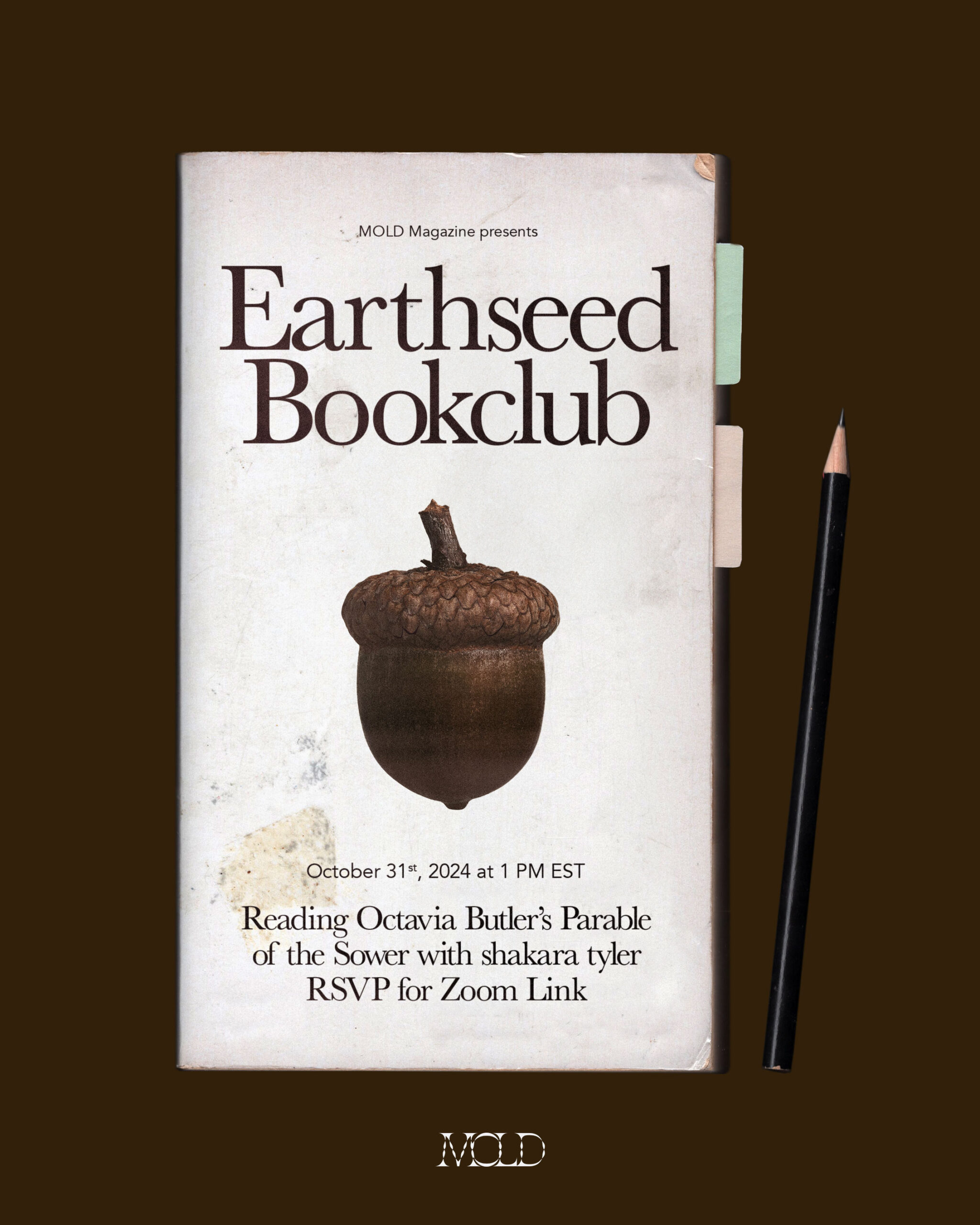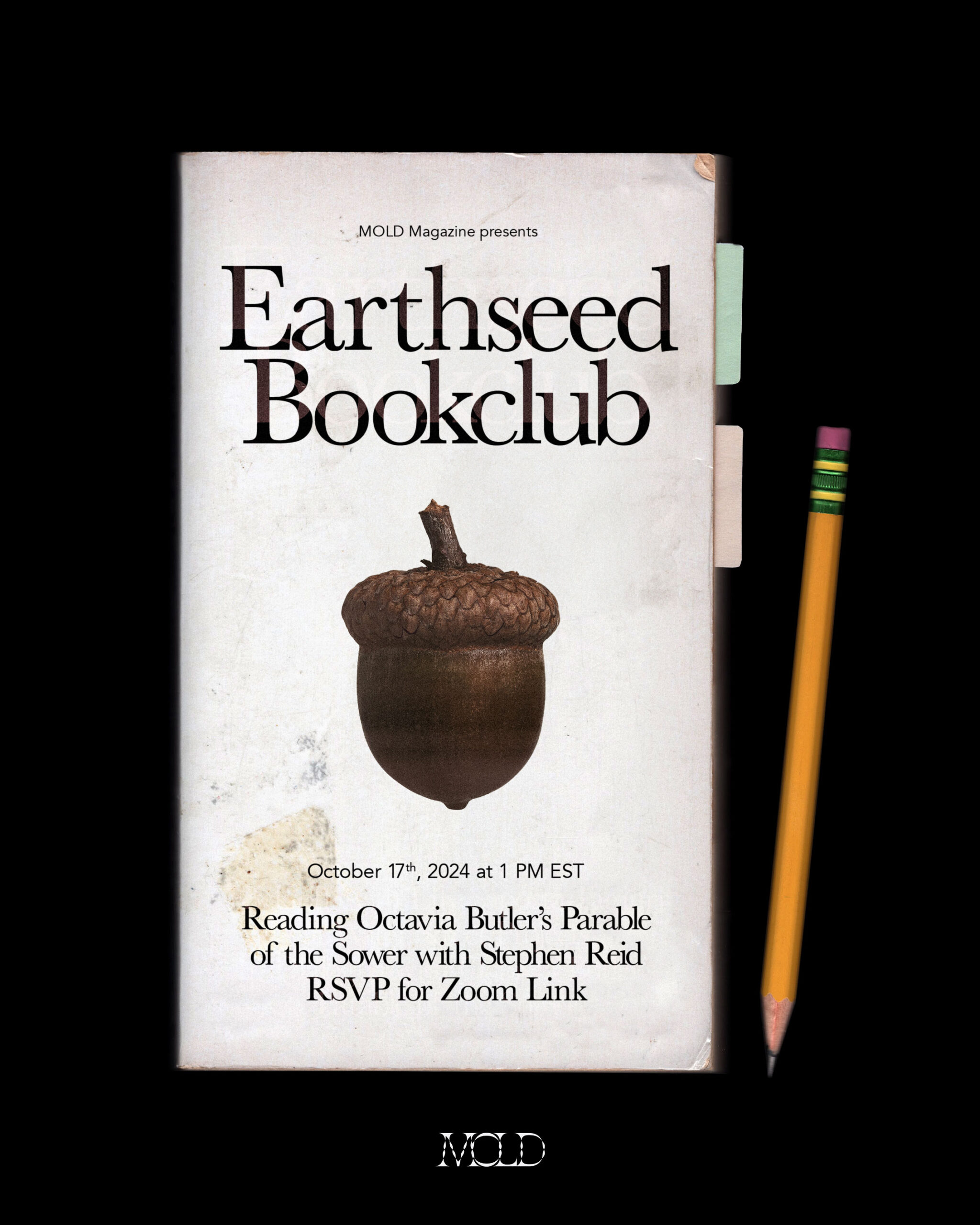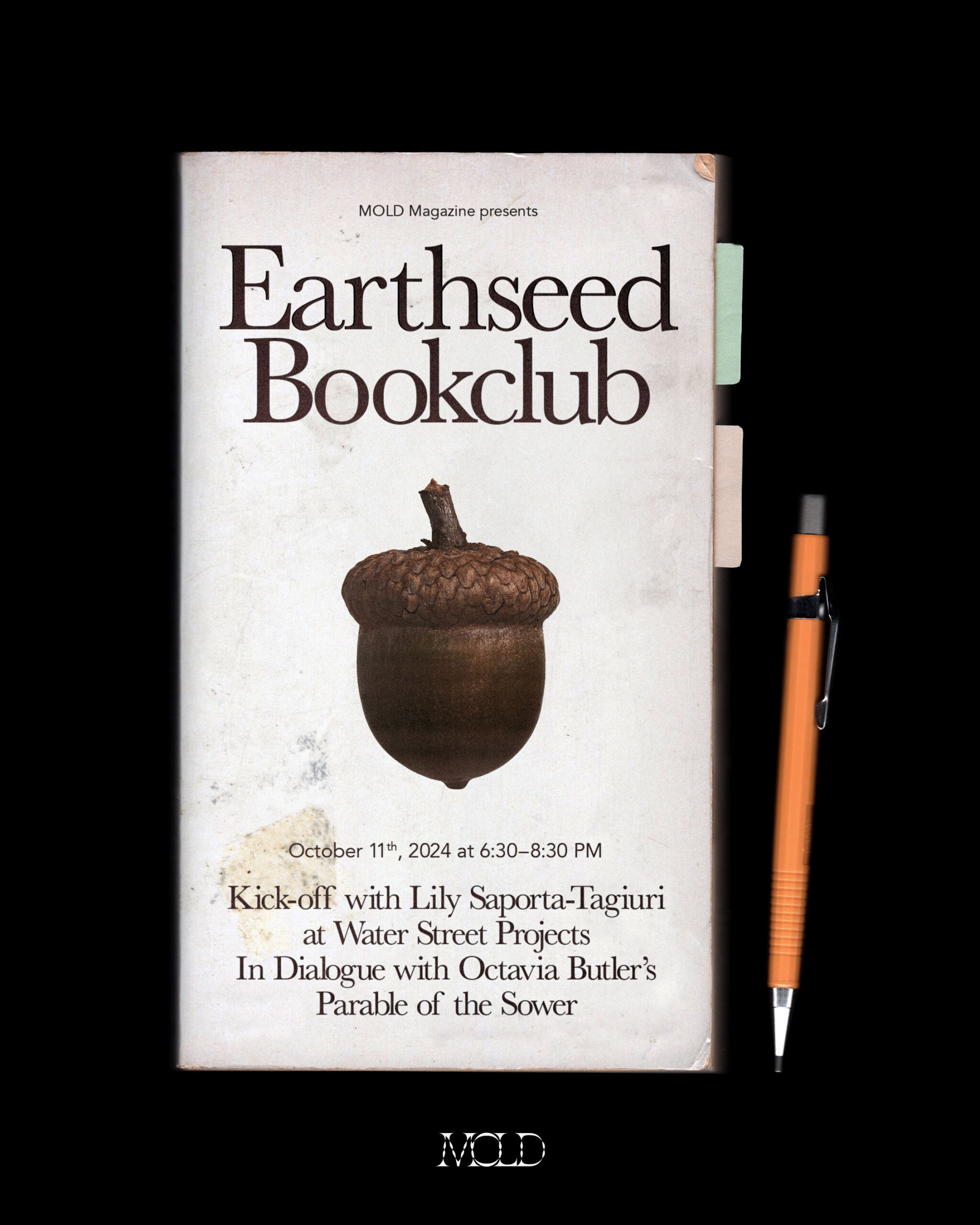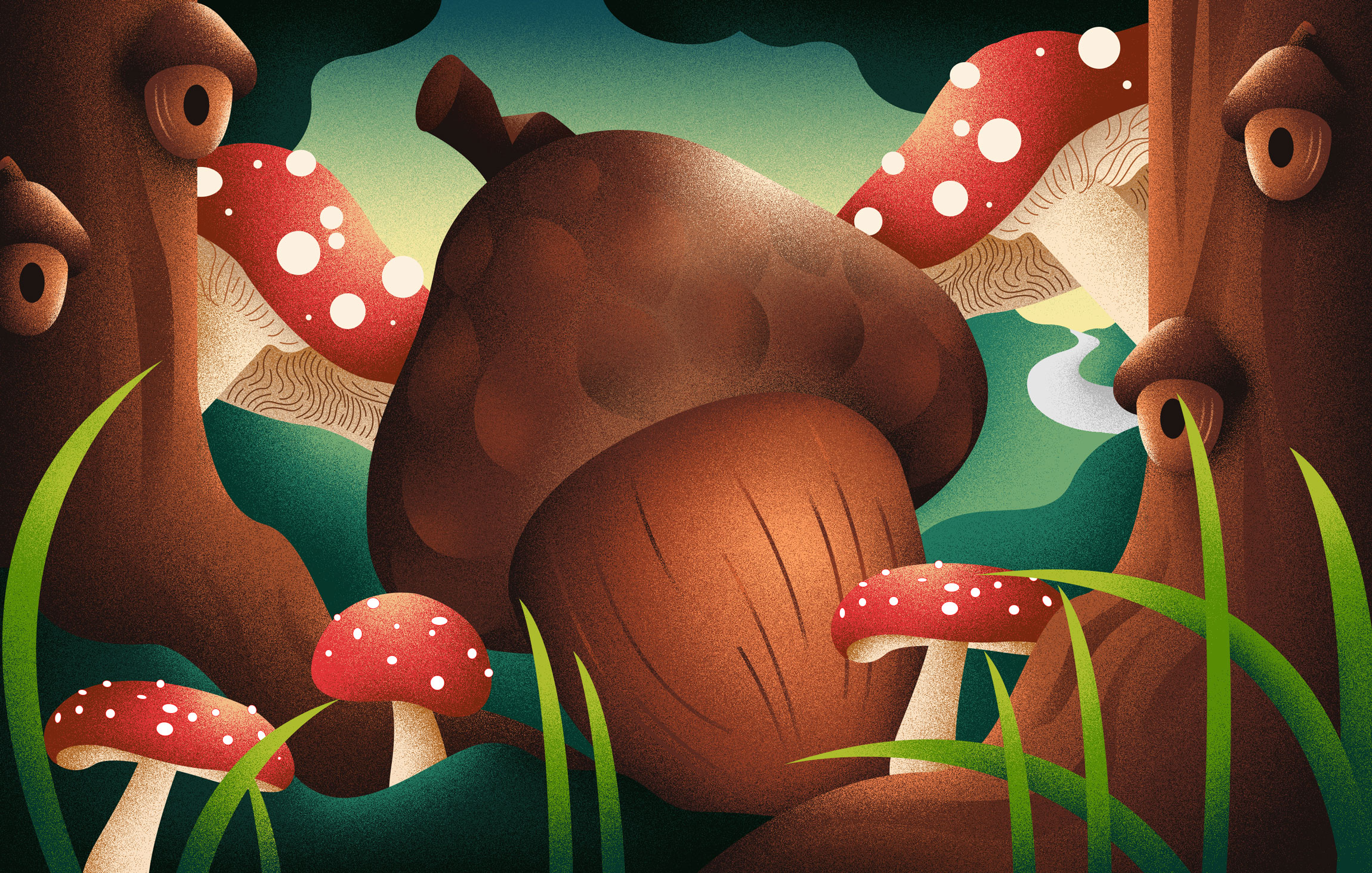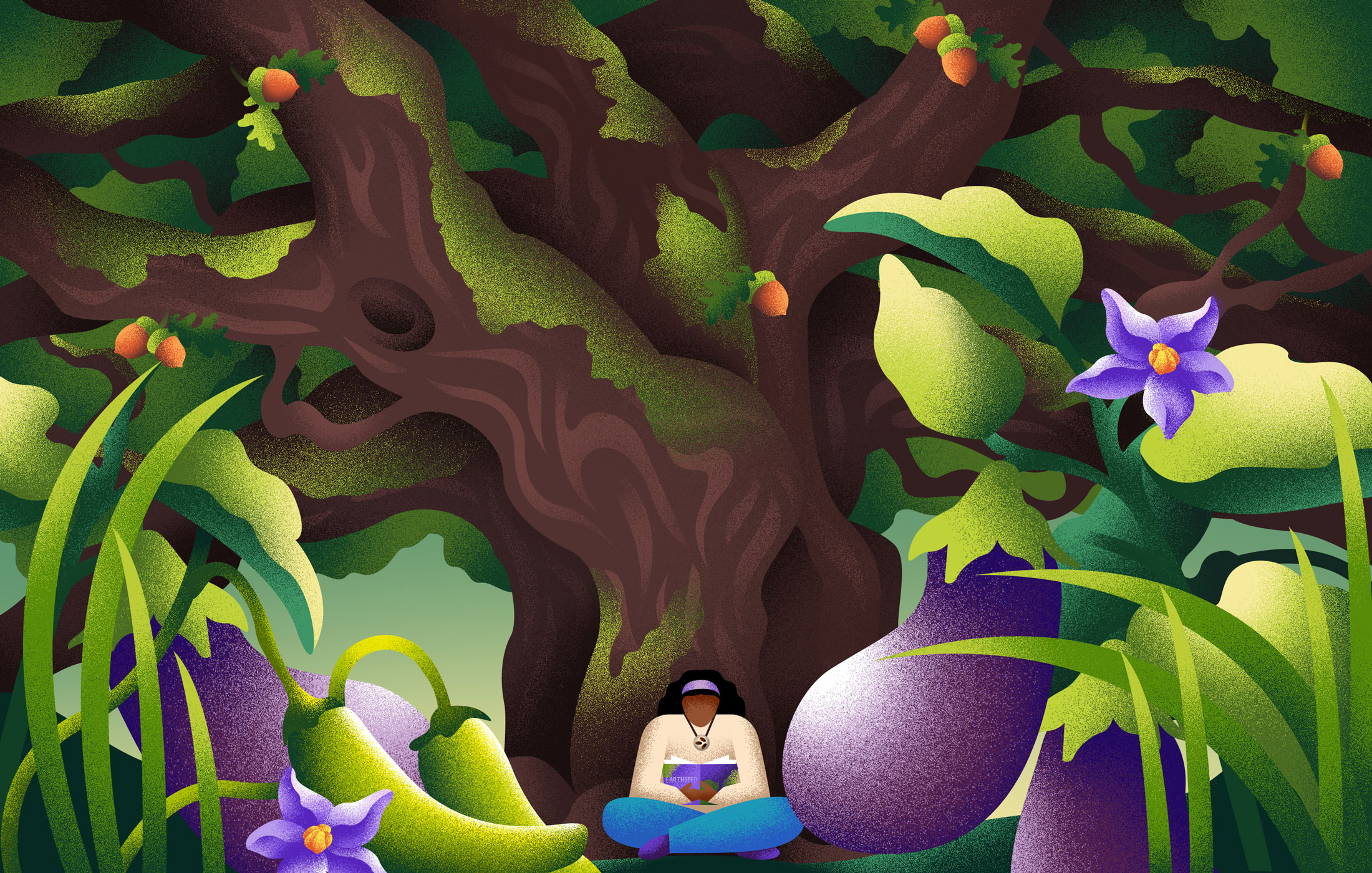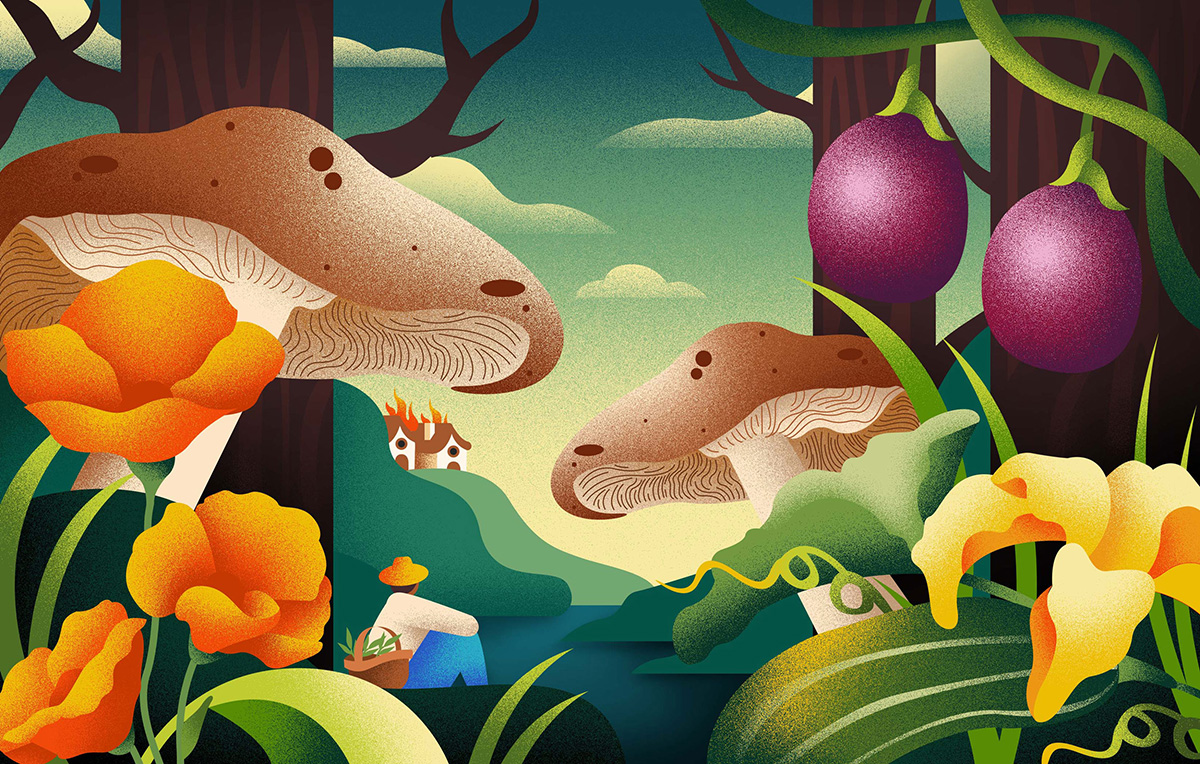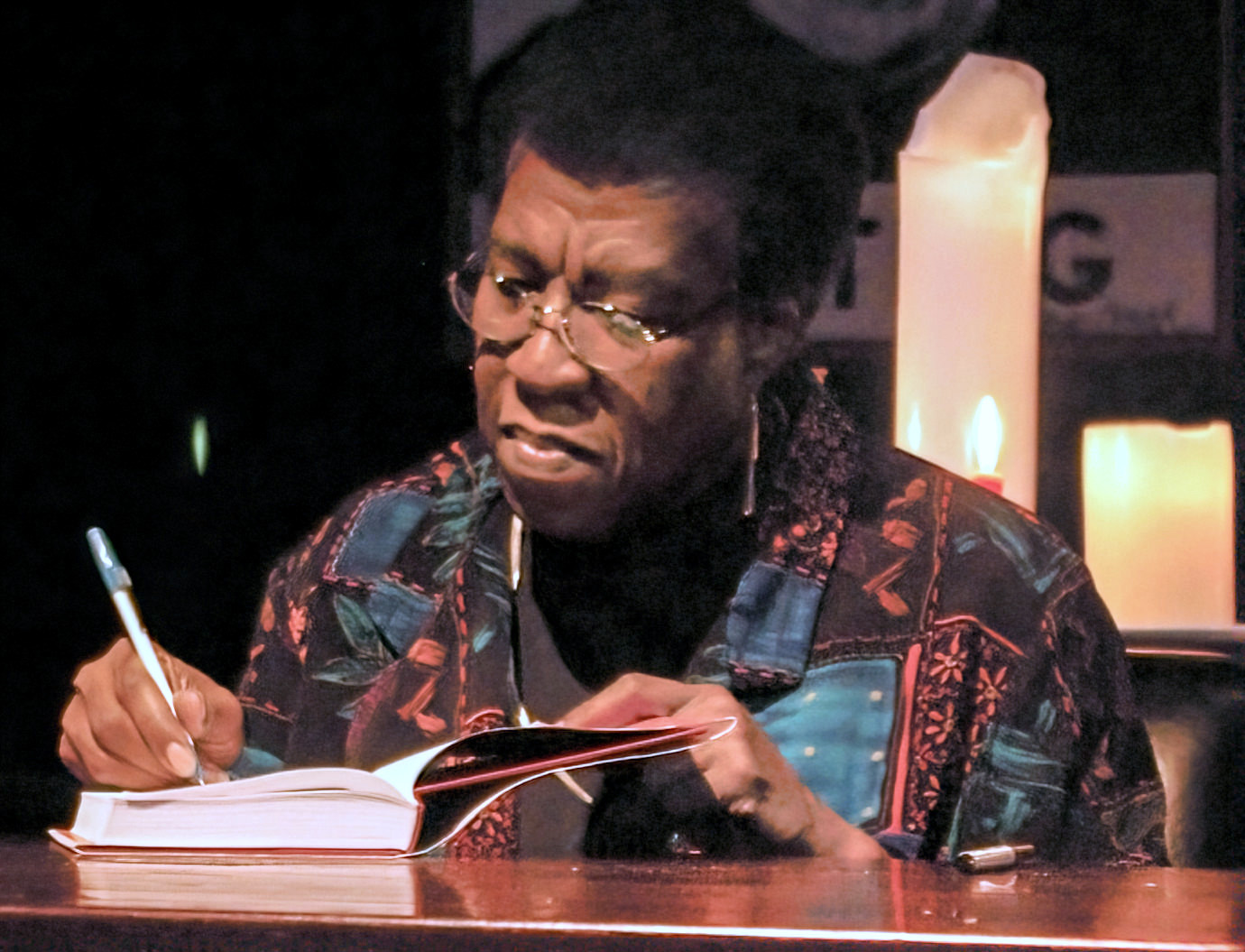This piece is a part of our series Earthseed, which explores Parable of the Sower’s legacy in shaping our current attitudes toward food futures.
Khalil Griffith is the site and program director of the Beacon Food Forest, one of the largest contemporary public food forests in North America. Below, he shares the way that reading Parable of the Sower shaped his path and perspective. You can read more about the work of the Beacon Food Forest here.
In my first year of living in Seattle, I was gifted the Parable of the Sower after a date. They said, “I got it for you in hopes that you’d dig into it,” and I did. I loved the book. It is one of the first books I picked up and read straight through. Octavia Butler’s writing style is immersive—the world is built as you’re going through the book; you have to be invested in what’s happening. There are so many valid lessons and real human moments in the book, specifically the concept that Lauren Olamina says about their God. That change is the only God. Throughout the book, Lauren sees things going wrong, things that are pretty questionable, and she actually vocalizes and organizes her neighbors to try and make sense of these things.
In Parable of the Sower, Octavia refused to soften her vision of this world and we needed that for setting up the harsh reality. It’s rough—the characters have lack of access to resources, lack of access to decent housing, lack of access to quality education. It’s brewing up the perfect storm and you’re seeing it just reach its peak predation from Lauren’s perspective.
Lauren was a badass because she is proactive and shaping preparation for the unknown things to come. She was capable of so much at such a young age when it came to building capacity and community. It’s typically the “bad guys” that have all the survival skills. The book made me think about all the things I didn’t know or what I didn’t understand. It made me think about community building, meeting people with a similar mindset, people that were thinking the same things as me.
And that’s when the food forest came into my life. I was thinking about how I didn’t have any understanding of how food grows, where it comes from, the process of farming, gardening, soil health—none of that. Parable marked such a huge shift in my life and what I thought was important.
I had just finished Parable and was weeding in the Native Guild with some other volunteers when someone asked me what I do for work. At the time, I was scooping ice cream at Molly Moons and I was like, “I don’t know about a lot of this life stuff.” We started talking, and it was the first time I vocalized my frustrations with systems and the way we’re navigating the world. For example, the experience of predation in America when it comes to things like car loans.
It started off like a joke, “I hate paying bills!” but the next thing you know, we were talking about the layers upon layers of debt people experience and how people can get lost in these systems. I recognized there was a deep kinship between a lot of us: what we feel, the things that we’re stressed or worried about, and also our hope of reshaping the world.
Predation is one of the largest factors in making people feel unsafe. It makes people feel like they have to go way harder than they need to in America. Seeing how predation plays out in the story felt like a mirror to what was happening in my life. I remember I was about to clock in to work one day, and there was a moment in Parable of the Talents that felt so close to my experience. I thought, I got to go lay in some grass real fast before I clock in to scoop ice cream for people. It felt pretty bad, but also very validating and empowering to recognize in the book, what a lot of us feel in the day-to-day.
In some ways, the Food Forest is a kind of Earthseed through the way that it holds an abundance mindset. The Food Forest is a public space. We share it. We experience theft, we experience vandalism. We’ve experienced a lot of things that just unfold throughout time. We’ve had people steal a tree before, but it’s like, “Well, they took a whole berry bush, so maybe they needed this berry bush.” When things go missing or something goes wrong, instead of approaching with the mindset of, “we have to put up fences, we have to hoard,” and acting in a way that emboldens the energy that we’re trying to step away from, instead, the other opportunity is to grow more bushes. We can plant two for the one that was gone, or share more of what we have so that folks don’t feel like they have to take.
That’s the way we’ve been preyed upon in America. It really reverberates through so many parts of how we live our lives, and we don’t really see it. I didn’t see it truly in fullness until I went to Japan recently. Thinking about how we’ve been raised or normalized through our culture, we have a different sense on what is and isn’t okay. It’s crazy that we don’t feel safe in the places that we’re born, or live, or make our living, or have a family. That sense of predation is in Parable of the Sower. It was being recognized and was the reason they tried to get away but also create a place that is open for those who recognized it.
The Food Forest works to validate people and then show them another lane that they can take to make changes in their lives. There is no perfection in her Parables. We have to have grace for all the characters in the book—Lauren, her family, her neighbors. The story is just unfolding and we are just a witness to it. A lot of decisions are human decisions made for those involved. It’s easy to read something and get frustrated with what’s happening, but it’s people doing their best. It’s helpful to reflect, compare, empathize, and put yourself in the shoes of the characters. See how these characters, living in this world, line up with the things in your own life. Think about how Earthseed shows up for you in your life.
